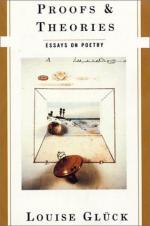|
This section contains 3,065 words (approx. 11 pages at 300 words per page) |

|
Mathematics in the nineteenth century was characterized by reorganization in every field, effected both by generalization, which led to the viewing of areas once considered discrete as special instances of the same general case, and by the examination of foundations, either in terms of basic concepts or by an axiomatic approach. Apart, therefore, from any specific contributions that mathematicians made to modern logic, the atmosphere was highly favorable to an explicitly logical investigation both of mathematics in general and of its various branches, including, by the end of the century, mathematical logic itself. At the same time, the growth of abstract algebra encouraged the persistence of Leibniz's ideal of mathematizing deductive logic; his ideas, although most were unpublished, maintained a steady, if at first tenuous, foothold. Thus, the early mathematical logicians, having caught the idea of a new kind of algebra, tended to work on it...
|
This section contains 3,065 words (approx. 11 pages at 300 words per page) |

|


